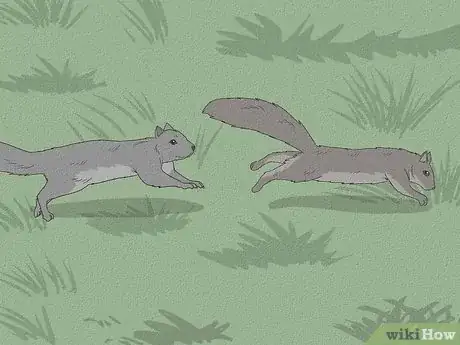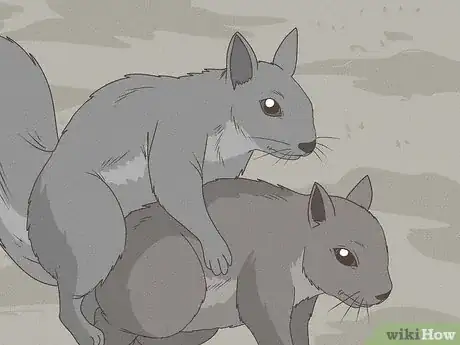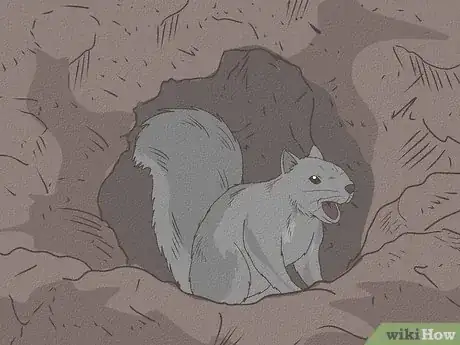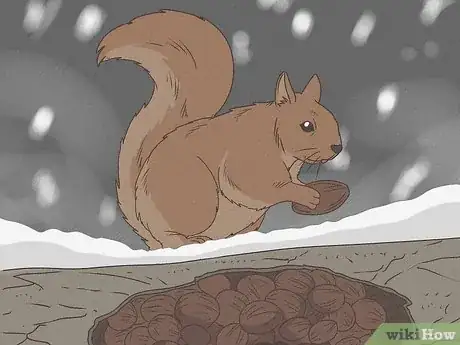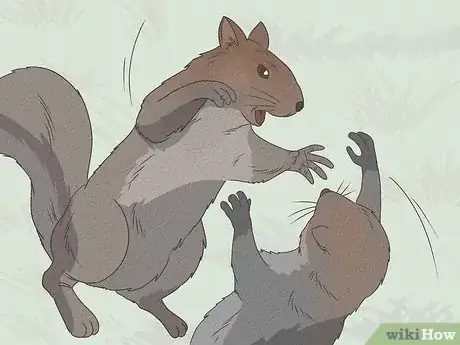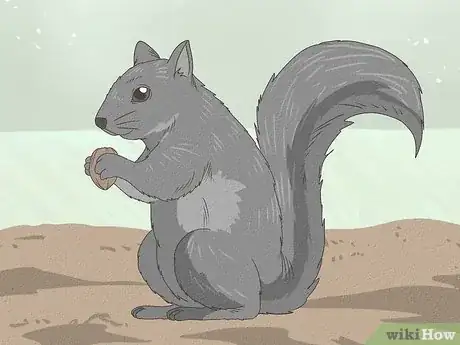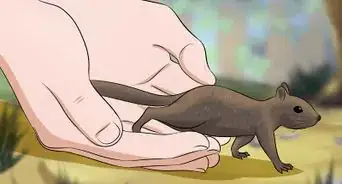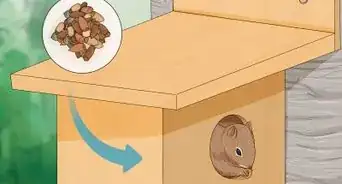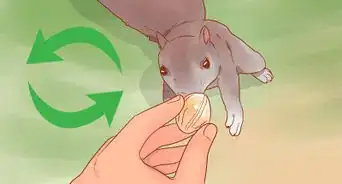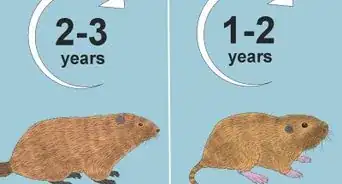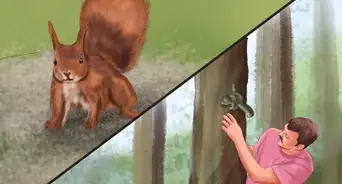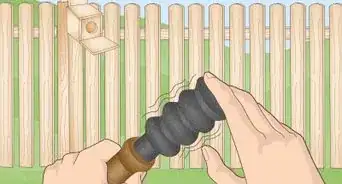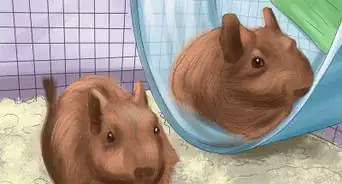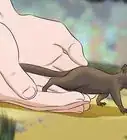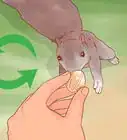This article was co-authored by wikiHow Staff. Our trained team of editors and researchers validate articles for accuracy and comprehensiveness. wikiHow's Content Management Team carefully monitors the work from our editorial staff to ensure that each article is backed by trusted research and meets our high quality standards.
There are 14 references cited in this article, which can be found at the bottom of the page.
Learn more...
Do you frequently catch squirrels running after each other in your backyard? Up and down a tree at the park? In your dreams? No matter the situation, it seems like squirrels are constantly chasing each other. Luckily, we've created an in-depth guide on why squirrels are always playing tag, so keep reading to find out more about their behavior and whether they hurt their friends in the process.
Things You Should Know
- Adult squirrels engage in chases to establish order, mate, and protect territory.
- Younger squirrels usually chase each other to play-fight, improving their coordination and strength.
- Squirrels rarely fight to the death, but adult squirrels engage in aggressive behavior–biting, scratching, screeching–to protect their territory and food supplies.
Steps
References
- ↑ https://www.esf.edu/aec/adks/mammals/gray_squirrel.htm
- ↑ https://animaldiversity.org/accounts/Sciurus_carolinensis/#20020904145483
- ↑ https://www.wildlifeonline.me.uk/animals/article/squirrel-breeding-biology-courtship-mating-chase
- ↑ https://www.wildlifeonline.me.uk/animals/article/squirrel-behaviour-vocalisation
- ↑ https://www.wildlifeonline.me.uk/animals/article/squirrel-behaviour-dominance-aggression-territoriality
- ↑ https://academic.oup.com/jmammal/article/95/3/491/876576
- ↑ https://www.wildlifeonline.me.uk/animals/article/squirrel-territory-home-range
- ↑ https://www.adfg.alaska.gov/index.cfm?adfg=wildlifenews.view_article&articles_id=120
- ↑ https://science.discoveryplace.org/stay-at-home-science/getting-nutty-how-squirrels-prepare-for-winter
- ↑ https://news.ufl.edu/articles/2018/01/why-should-you-love-squirrels-here-are-six-reasons.html
- ↑ https://www.adfg.alaska.gov/index.cfm?adfg=wildlifenews.view_article&articles_id=120
- ↑ https://www.wildlifeonline.me.uk/animals/article/squirrel-behaviour-play
- ↑ https://www.wildlifeonline.me.uk/animals/article/squirrel-behaviour-play
- ↑ https://www.euclidlibrary.org/tickle/squirrels
- ↑ https://www.wildlifeonline.me.uk/animals/article/squirrel-behaviour-play
- ↑ https://www.mass.gov/service-details/learn-about-squirrels
- ↑ https://portal.ct.gov/DEEP/Wildlife/Fact-Sheets/Red-Squirrel
